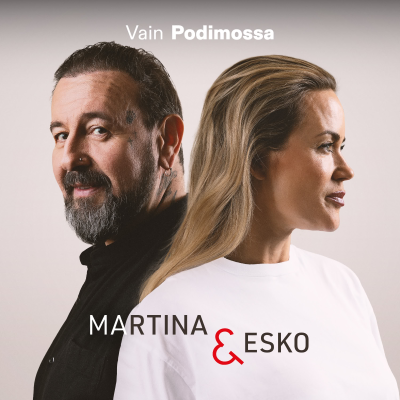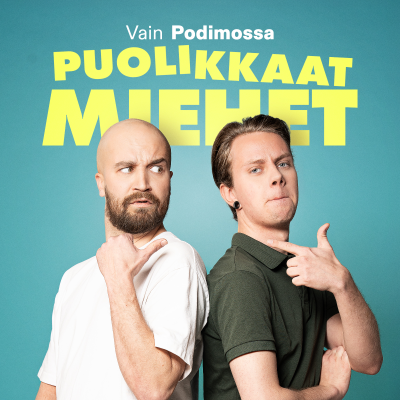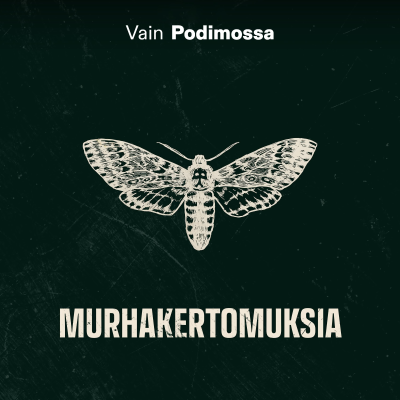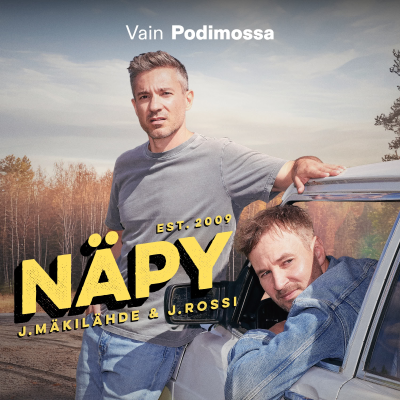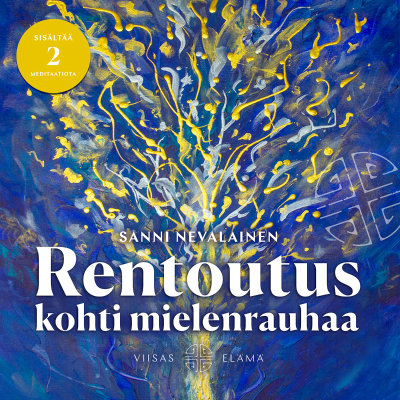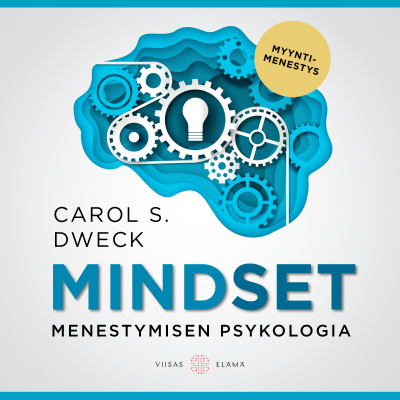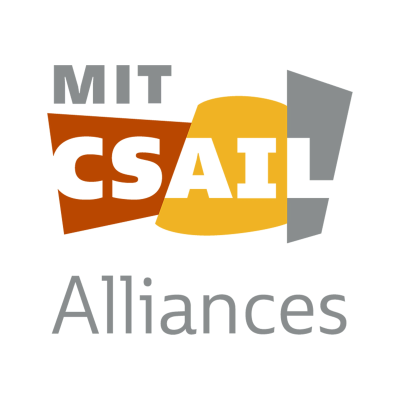
CSAIL Alliances Podcasts
englanti
Teknologia & tieteet
Rajoitettu tarjous
2 kuukautta hintaan 1 €
Sitten 7,99 € / kuukausiPeru milloin tahansa.
- Podimon podcastit
- Lataa offline-käyttöön
Lisää CSAIL Alliances Podcasts
MIT's Computer Science and Artificial Intelligence Laboratory (CSAIL) Alliances serves as a gateway into the lab for industry and governmental institutions seeking a closer connection to the work, researchers, and students of CSAIL. Our podcast aims to provide inside access to topics covered by CSAIL and other leaders advancing computer science and AI research.
Kaikki jaksot
75 jaksotAI and Our Time at Work: Featuring MIT Neil Thompson and David Autor
What does AI really mean for jobs, productivity, and the future of work? Recorded with a live audience at the MIT Museum! In this special live taping of the CSAIL Alliances Podcast, host Kara Miller explores big questions on AI and the future of work with two MIT researchers leading research on technology and labor—David Autor, MIT economist and coauthor of The Work of the Future, and Neil Thompson, Director of MIT FutureTech. Together, they unpack what the evidence actually says about AI and work—cutting through hype, fear, and speculation. The conversation explores how AI is reshaping tasks (not just jobs), why productivity gains have been uneven, and what history can teach us about today’s moment. From software development and medicine to insurance, law, and gig work, Autor and Thompson explain when AI acts as a powerful collaborator—and when full automation simply isn’t realistic or cost-effective. This episode offers a grounded, thoughtful look at how AI is actually being used today—and what that means for workers, organizations, and society going forward. Further reading: Joint research paper: https://www.nber.org/papers/w33941 Vox: Here’s a glimmer of hope about AI and jobs: https://www.vox.com/technology/470688/ai-jobs-chatgpt-bubble Episodes, listener discounts, meet the host, and more can be found here: https://csail.mit.edu/podcast Connect with CSAIL Alliances: On our site: cap.csail.mit.edu/about-us/meet-our-team On LinkedIn: linkedIn.com/mit-CSAIL #AIandWork #FutureOfJobs #ArtificialIntelligence #EconomicsOfAI #FutureOfWork #MITCSAIL #TechnologyAndLabor #AIResearch
The Future of Robotics: Hype, Breakthroughs, and Challenges with Professor Russ Tedrake
Host Kara Miller sits down with MIT Professor Russ Tedrake, a leading researcher in robotics and AI at CSAIL to explore the rapidly accelerating world of humanoid and intelligent robots. Tedrake takes us behind the scenes of the robotics revolution—from the cultural resistance and skepticism, to the moment everything shifted. Today, major tech leaders are declaring humanoid robots “the biggest product in human history.” But is that true? Is it hype, or are we on the edge of a real technological turning point? Topics Include: 01:00 - The Ramp Up of Robots 03:00 - Where Will We See Robots? 07:44 - Will Robots Replace Humans Soon? 13:02 - Robots Entering the Workforce 15:32 - Robots and Low Birth Rates 20:06 - Robots and Humans Working in the Same Space 24:57 - AI Changed the Trajectory of Robots 26:42 - The Barriers of a Personal Robot 31:37 - The Relationship between Academia and Companies 35:37 - Will You Have a Robot in the Home in Five Years? They explore why COVID fundamentally changed how the world views automation and robotics, and dive into the hardest technical challenges in robotics, revealing why the real world is nothing like chess or chatbots. We talk about how AI, control theory, and physical dynamics must work together to create true intelligence, and discuss why humanoid robots may soon become as common and transformative as smartphones. Finally, we examine the growing gap between digital intelligence and embodied intelligence in the physical world, and what it will take to bridge it. Episodes, listener discounts, meet the host, and more can be found here: https://csail.mit.edu/podcast Connect with CSAIL Alliances: On our site: cap.csail.mit.edu/about-us/meet-our-team On LinkedIn: linkedin.com/company/mit-csail #Robotics #ArtificialIntelligence #HumanoidRobots #FutureOfWork #AIInnovation #TechPodcast #MachineLearning #Automatio
Bridging the AI Gap: Inside MIT’s Systalyze Startup with Associate Professor Manya Ghobadi
In this episode of MIT CSAIL Alliances, host Kara Miller sits down with Professor Manya Ghobadi, a researcher and entrepreneur bridging the gap between academia and industry. Ghobadi, who has worked at Microsoft Research, Google, and now leads her own startup Systalyze, explores why so many companies struggle to efficiently deploy AI — and how her team is creating the “AI doctor” enterprises didn’t know they needed. From hospitals sitting on mountains of private data to banks seeking smarter fraud detection, Ghobadi explains how better infrastructure and smarter tools can finally unlock AI’s full potential. Tune in for an inside look at how innovation moves from lab to launchpad — and what it takes to make AI work in the real world. Topics Include: 00:07 - Origins of Systalze 01:40 - AI systems are difficult to build 02:53 - Systalyze is like an AI doctor 03:38 - How AI can transform the health care industry 04:41 - When companies unlock their AI potential 05:13 - Academia as an enterprenuer Episodes, listener discounts, meet the host, and more can be found here: csail.mit.edu/podcast Connect with CSAIL Alliances: On our site: cap.csail.mit.edu/about-us/meet-our-team On LinkedIn: linkedin.com/company/mit-csail #MITCSAIL #AI #Education #MIT #GenerativeAI #Leadership #Technology #csailpodcast
Investing in the Age of AI: Deep Tech, Risk, and Reward with Bilal Zuberi
How will AI reshape the future of deep tech, industry, and investment? In this episode of the MIT CSAIL Alliances Podcast, host Kara Miller speaks with Bilal Zuberi, founder and managing partner of Red Glass Capital. A longtime venture capitalist, Zuberi explains why AI isn’t just changing apps and SaaS tools—it’s unlocking massive sectors like manufacturing, healthcare, energy, and defense. He shares why he sees AI as the new “cost of intelligence,” what deep tech really means, and how breakthrough innovations could create trillions of dollars in value while tackling humanity’s toughest challenges, from climate change to healthcare. Tune in for a conversation on the future of innovation, the shifting role of academia, and why Zuberi believes we’re moving from being AI consumers to becoming AI creators. Topics Include: 02:39 - Introduction to Bilal Zuberi 04:43 - What is Deep Tech? 06:16 - Using technology to solve important problems 10:45 - AI granting access to old dreams and new jobs 12:56 - How helpful is AI as a tool? 14:52 - How AI is changing the world 19:04 - Academia’s role in AI 26:09 - The value of venture capital 30:12 - How AI will influences jobs 33:46 - What will be mainstream in five years? 36:13 - Outro Episodes, listener discounts, meet the host, and more can be found here: https://csail.mit.edu/podcast For Danny Weitzner’s episode: https://soundcloud.com/csail-alliances/how-companies-can-rebuild-trust-around-data-with-danny-weitzner Connect with CSAIL Alliances: On our site: cap.csail.mit.edu/about-us/meet-our-team On LinkedIn: linkedin.com/company/mit-csail #MITCSAIL #AI #Education #MIT #GenerativeAI #Leadership #Technology #csailpodcast
Innovation Alchemy: Industry and Academia with Lori Glover
From sports drinks to self-driving cars, some of the most transformative innovations have emerged when universities and businesses join forces. In this episode, host Kara Miller talks with Lori Glover, author of Innovation Alchemy and Managing Director of Global Strategic Alliances at MIT CSAIL, about the surprising ways academic research and industry collaboration shape technology, talent, and the global economy. Together, they explore stories from the invention of Gatorade to modern AI research, the challenges of aligning two very different cultures, and how partnerships can spark unexpected breakthroughs, sometimes changing entire industries. Whether you’re curious about how new ideas move from the lab to the marketplace or want to learn why companies and universities need each other more than ever, this episode offers a deep look into the evolving innovation ecosystem at the juncture of academia and industry. Episodes, listener discounts, meet the host, and more can be found here: https://csail.mit.edu/podcast Connect with CSAIL Alliances: On our site: cap.csail.mit.edu/about-us/meet-our-team On LinkedIn: linkedin.com/company/mit-csail #MITCSAIL #AI #Education #MIT #GenerativeAI #Leadership #Technology #csailpodcast
Valitse tilauksesi
Rajoitettu tarjous
Premium
Podimon podcastit
Lataa offline-käyttöön
Peru milloin tahansa
2 kuukautta hintaan 1 €
Sitten 7,99 € / kuukausi
Premium
20 tuntia äänikirjoja
Podimon podcastit
Lataa offline-käyttöön
Peru milloin tahansa
30 vrk ilmainen kokeilu
Sitten 9,99 € / kuukausi
Premium
100 tuntia äänikirjoja
Podimon podcastit
Lataa offline-käyttöön
Peru milloin tahansa
30 vrk ilmainen kokeilu
Sitten 19,99 € / kuukausi
2 kuukautta hintaan 1 €. Sitten 7,99 € / kuukausi. Peru milloin tahansa.

